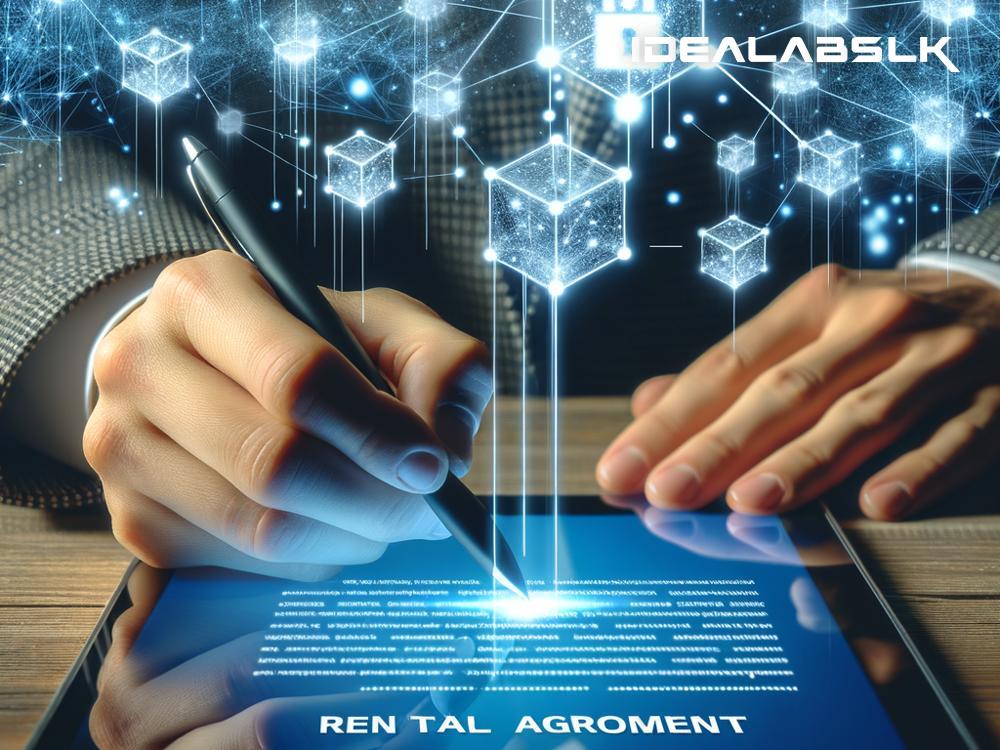Blockchain in Real Estate: Using Smart Contracts for Rent Payments
The real estate industry, long known for its traditional ways of operating, is on the cusp of a major transformation, thanks to blockchain technology. One of the most promising applications of blockchain within this sector is the use of smart contracts for rent payments. This innovation promises to streamline the process, making it more efficient, secure, and enjoyable for both landlords and tenants.
What is Blockchain, and How Does It Work?
Before diving into the specifics, it's essential to lay down the basics. Imagine blockchain as a digital ledger that is completely transparent and impossible to tamper with. Once information is recorded on the blockchain, it's there for good and can be seen by anyone. This feature makes it a perfect tool for recording transactions in a secure and trustless manner.
The Magic of Smart Contracts
Smart contracts lie at the heart of blockchain's promise for the real estate industry. These are self-executing contracts where the terms of the agreement are directly written into lines of code. The contract automatically enforces and executes the terms when certain conditions are met, without the need for intermediaries. This means less paperwork, fewer errors, and no middlemen.
Revolutionizing Rent Payments with Smart Contracts
Rent payments are a monthly headache for many tenants and landlords. The traditional process involves a lot of back-and-forth, paperwork, and, unfortunately, trust issues. Here's where smart contracts come to save the day:
-
Automated Transactions: Once the smart contract is set up, rent payments can be automated. The system will transfer the funds from the tenant’s account to the landlord’s account on a specified date every month. This automation saves time and eliminates the possibility of "the check is in the mail" type excuses.
-
Security: With blockchain, the transaction records are immutable and transparent, meaning once the payment is recorded, it cannot be changed or deleted. This feature provides a clear audit trail and significantly reduces the potential for disputes.
-
Lower Costs: By cutting out the middlemen - banks, payment processors, and sometimes property managers - the transaction costs involved in rent payments can also be significantly reduced. This aspect can be beneficial for both tenants and landlords in terms of saving money.
-
Trustless System: Perhaps one of the most revolutionary aspects of using smart contracts for rent payments is the creation of a trustless system. The contract itself enforces the agreement, so both parties do not need to trust each other; they just need to trust the technology.
-
Immediate Conflict Resolution: In cases of disputes or issues, the blockchain provides an indisputable record of transactions and interactions. Additionally, smart contracts can include mechanisms for automatic conflict resolution, making it easier and faster to solve problems.
Real-World Application and Adoption
While the concept might sound futuristic, several startups and ventures are already exploring the use of blockchain and smart contracts in real estate transactions, including rent payments. The main challenge now is not technological but regulatory, as governments and regulatory bodies need to catch up and provide a legal framework for these innovations to thrive.
The Road Ahead
The implementation of blockchain and smart contracts in the real estate sector, especially for rent payments, is still in its early days. However, the potential benefits are substantial. As the technology matures and more people become comfortable with the idea, we can expect to see a significant transformation in how real estate transactions, including rent payments, are conducted.
For landlords and tenants willing to embrace this change, the future promises a more efficient, secure, and less stressful way of managing rent payments. The revolution in real estate is just beginning, and blockchain is leading the charge. Welcome to the future of renting.

